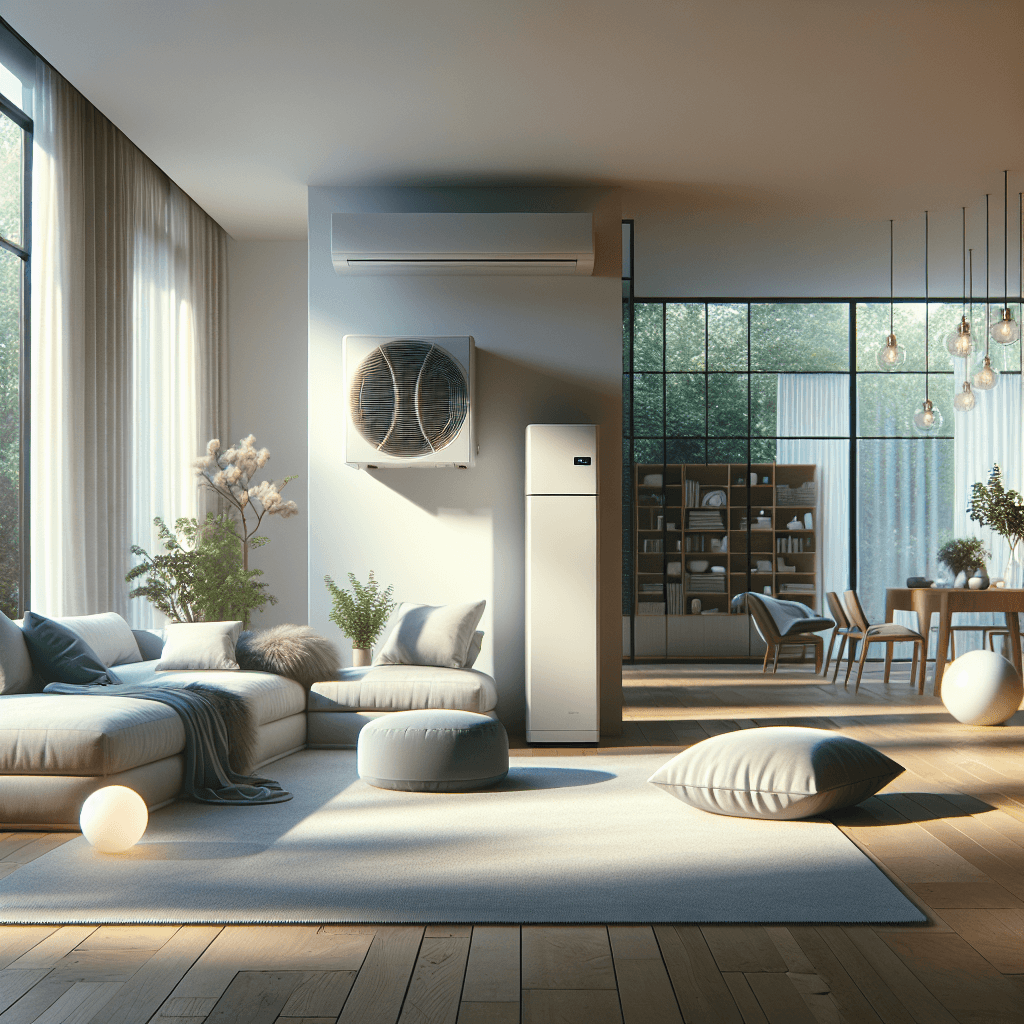- Published on
All About Heat Pumps? Everything You Need to Know for a Cozier Home

When it comes to creating a snug and inviting atmosphere in our homes, the heating system plays a pivotal role, especially during those chilly months. If you're considering an upgrade or a new installation, you may have encountered a buzz around heat pumps. Let's delve into what heat pumps are and how they can revolutionize the comfort of your home.
Understanding Heat Pumps: The Comfort Alchemists
Imagine turning chilly air into cozy warmth or the reverse—exchanging indoor heat for a fresh, cool breeze. This is the magic that heat pumps perform. Technically, heat pumps are devices that transfer heat from one place to another using a small amount of energy. They work similarly to a refrigerator but can do much more than just cool—they also heat.
Heat pumps are comprised of two main components: an indoor unit called an air handler and an outdoor unit similar to a central air conditioner, known as the heat pump. A compressor circulates refrigerant that captures and releases heat as it travels between the indoor and outdoor units.
The Refrigeration Cycle: A Delicate Balancing Act
Let's get a bit more technical. The refrigeration cycle is a closed system consisting of four main elements: evaporator, compressor, condenser, and expansion device. The refrigerant—the lifeblood of the system—circulates through these components changing from a low-pressure gas to a high-pressure liquid and back again.
When heating your home, the refrigerant absorbs external cold air in the evaporator coil and is compressed to a high-temperature gas. This gas is then condensed, releasing its stored heat into the indoor space. In the summer, this cycle is reversed, extracting heat from your home and releasing it outdoors, thereby cooling the interior.
Phase Changes: The Heat Transfer Dance
Diving deeper, heat pumps leverage the physical properties of the refrigerant, especially phase changes, which are transitions between gas, liquid, and sometimes solid states. When the refrigerant changes from a liquid to a gas (evaporation), it absorbs heat. Conversely, when it changes from a gas to a liquid (condensation), it releases heat. It's this "dance" of phase changes that allows your heat pump to move heat from outside to inside your home, offering warmth even on cold days.
The Compressor: The Heart of the System
At the core of the heat pump's operation is the compressor. Think of it as the heart of the system, pumping the refrigerant throughout the circuit. It increases the pressure of the refrigerant to raise its temperature, moving it through the coils where the heat can be either released into your home or expelled outside, depending on your needs.
Actions and Recommendations for Lifestyle or Home Improvement
So, how do heat pumps translate into a better home experience? Here are my recommendations:
Go Green and Save Money: Heat pumps are energy-efficient, which means they can provide the same heating or cooling at a fraction of the cost of traditional systems. This isn't just good for your wallet; it's also better for the planet.
Year-Round Comfort: Install a heat pump and enjoy both heating and cooling from the same unit. It’s an all-in-one solution that’ll leave you and your family comfortable whatever the weather.
Improve Air Quality: Heat pumps circulate and filter air as they work, reducing humidity and airborne contaminants. This results in improved indoor air quality, which is essential for a healthy home environment.
Modernize Your Home: Upgrading to a heat pump can be a step towards modernizing your home's heating and cooling system. Smart heat pumps can integrate with home automation systems, allowing you to control temperatures remotely and optimize your energy usage.
Investment for the Future: While the upfront cost of a heat pump can be higher than traditional systems, the long-term energy savings and increased property value can make it a wise investment.
Seek Expert Advice: With various types of heat pumps available, including air-source, water-source, and geothermal, consulting a professional to find the perfect fit for your home is key.
Before making a decision, consider the size of your home, the climate you live in, and your budget. Remember, investing in a heat pump is not just a purchase—it's a step towards a more comfortable, sustainable, and economically savvy home life. So, wrap yourself in the warmth of efficiency and let your heat pump do the rest!